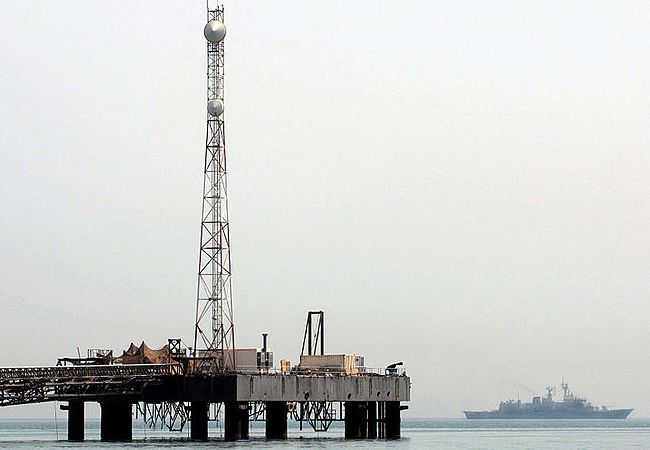
By Gazi Hassan
In order to contain the spread of the coronavirus outbreak, many countries are under lockdown and this has resulted in a reduced demand for fuel to a considerable level with prices falling to their lowest in 18 years, dropping below US$ 25 a barrel. The forecast for global oil demand is projected to show a decrease of 0.6 per cent, or 600,000 barrels of oil per day (bpd), year-on-year. The estimates show that the total oil demand in 2019 was approximately 99.8 million bpd, which is now projected to decline to 99.2 million bpd in 2020. This severe drop, compared to previous estimates, takes into account various quarantine measures and lockdown in various countries, massive cancellations of flights by the airlines and travel ban by various governments.
India is also likely to see a drop of 5-10 per cent in the quantity of fuel sales amid COVID-19 restrictions. The annual consumption figures of the current financial year and also 2020-21 are set to diminish with the decline in the purchase of petrol, diesel and jet fuel.
The global demand for road fuels will stay largely flat. The demand in 2019 was estimated to have reached 49.7 million bpd. Prior to the coronavirus, it was expected that the demand segment will grow to 50.3 million bpd in 2020, but now it seems to reach only about 49.8 million bpd. The reduction will occur due to the reduced road traffic in the first half of 2020. In China, the demand for petrol and diesel was down by about 1.5 million bpd in February. Whereas in Europe, as more cities are implementing quarantine and travel restrictions, the peak impact will be half of what was in China in terms of volume of reduced demand. In the US, the impact will be equal to half of what is in Europe. Similarly, in Asia—Japan, South Korea, India, and Southeast Asia, the impact will be 20 per cent of the impact observed in China.
As the coronavirus spreads across the world, and with many countries imposing travel restrictions and airlines continuing cancellation of thousands of flights, jet fuel will be hit the hardest among various fuel sectors. The global air traffic will fall approximately by 16 per cent this year compared to the levels in 2019, which stood at around 1,90,000 flights per day (commercial, cargo and private flights including helicopters). To put the reduction into context, the pre-coronavirus estimate was for an average of 2,00,000 flights per day this year. Many distressed airlines will face heavy cost cuts, and many non-profitable routes are likely to be closed.
The crude oil market has collapsed by more than half in over two weeks with a decrease in demand and further aggravated by a price war between Saudi Arabia and Russia. In a meeting held in the first week of March in Vienna, Russia refused to concede to Saudi Arabia’s demand for cutting the crude output by 1 million bpd to balance the demand deficit caused by the COVID-19 crisis. Russia refused to cut its production, intentionally reducing the prices in a bid to derail America’s shale boom and its high-cost shale production. Saudi Arabia, in a bid to counter Russia’s production, has slashed the oil prices, attracting Asian and European markets and is ramping up the production doing the exact opposite of what is needed to be done for balancing the oil market.
With Aramco deciding to pump up its crude oil production from 12 million 13 million bpd, Russia will not be going to sit idle and allow Saudis to control the crude market. Russia will ramp up its crude oil production further flooding the market with cheap oil where the crude is trading at US$ 23 per barrel, thus creating a surplus in supplies and pushing the world economy into a slowdown and a possible recession because of decrease in demand. Saudi oil at US$ 8.98 per barrel is the cheapest to be produced in the world in comparison to the US shale oil production which costs US$ 23.35 per barrel, while Russia’s production averages at US$ 19.21 per barrel. With the new drilling technologies, Saudi Arabia’s production costs have decreased even further in some fields.
What is far more certain in this situation is the pain that the oil crash will inflict on America’s oil and shale industry. Major oil companies including Chevron (CVX) and ExxonMobil (XOM) will cut their production and spending. Occidental Petroleum (OXY) has already slashed its dividend by 86 per cent for this year. And many smaller oil companies that are burdened with debt will be forced to lay off their workers.
The effects of the pandemic and the tensions with Saudi Arabia come at a critical political juncture for Putin as he seeks to reform constitutional provisions for the presidential terms which will allow him to rule till 2036. While Putin would like to continue in the Kremlin, his effective management of the challenges of the global pandemic and oil price war will need open channels of negotiations with the Saudis to end the crisis that they have created. Till the tensions between Saudi and Russia are not resolved, the global energy markets and international economic growth will continue to remain a casualty of the zero-sum game.
Mr Gazi Hassan is a Senior Research Associate working with CPPR- Centre for Strategic Studies. Mr Hassan’s research focuses on Asia-Pacific, particularly exploring geopolitical dynamics, developments related to trade, terrorism, the role of various actors and including the security dynamics of the region. He has previously worked as a researcher at the Vivekananda International Foundation, New Delhi and has been contributing articles to SADF, various online platforms like Foreign Policy News, International Policy Digest, The Quint, The Median and Newspaper dailies in Jammu and Kashmir.




